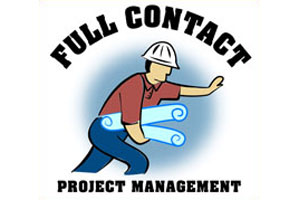Pickin’ Up and Lookin’ Good

What's really nice, Team, is when you, as the PM, do your job well and get paid for that extra work your company was required to do. But do you know what's even better? Finally getting paid more than $30,000 on a change order request (COR) that had been turned in to the client and pending for so long that everyone practically forgot about it. Is that nice, or what? That sort of thing can make this coach look pretty good.
But notice that I also said something about everyone "practically" having forgotten about it. In this case, the operative word is practically.
One of the fundamental teachings of Full Contact Project Management is the whole idea of noticing changes to your scope of work, identifying them to the client, getting the client's signed permission to proceed - on a paying basis - and then doing the work efficiently. Finally, of course, we want to collect our money.
In this case, we were told by the client to do some work. We questioned (through an RFI) and contended that it was not in our scope, proved our point, and then got the written direction to proceed on a time-and-materials basis. While the work was being done, our foreman took great care to get the Extra Work Authorization (EWA) tickets signed every day. And we also did a good job of distinguishing this particular issue from any others, so that the EWAs were clear as to what, exactly, was being done. (We never want them to become confused later with a different issue.) The client's superintendent signed, dated and took no exceptions to them.
"But Coach, but Coach," you say. "What's so important about all of that?"
The tickets were clean (no negative comments) and the issue was clear (authorized as T&M, and signed for). Clean tickets and clear issues are so much easier to get paid for that it's not even funny. And, if you've ever suffered through not getting paid for such things, then you know it's not very humorous.
But that's only part of the story. The signed tickets were calculated and turned into a COR and submitted to the client. That all went according to plan. And then, while no one was looking, the COR apparently slipped through a crack in the client's office, and was never processed and paid.
We continued to track the COR every month, along with the others. Curiously, this one never got paid, the job was closed out, and yet this COR kept showing up on our receivables list each month by our accounting department, but was never disclosed to the PM side of the company. Sometimes these things happen. There is not always a perfect marriage between PM and accounting.
But a good PM puts the CORs on a change order request log so that they can be tracked, even when the accounting department has forgotten about them. And, we happened to follow up on this one during a routine look at old jobs.
Doesn't sound to you like much of a story so far? Then, check this out: We discovered this open COR six full months after completion, after retentions were paid, and the site occupied. When you might think it would have been a lost cause, one of those "Oh, well. Let's not do that again" kind of moments. Are you with me?
So I sent a clear, single-issue, letter (what I call a "winning letter") to the client, including all of the back-up information for the COR, the copies of the signed tickets and the RFI, reminding the client of all of the approvals, and requesting payment now, even though the job was closed out.
The documentation was so clear, so compelling, that there was no way the client could say something like, "Sorry, but..." You finish the sentence, because you've heard it before. Things like, "We'll try and make it up on the next one." And you just swallow a few thousand.
Instead, this was one of those times that you got to feel good about how your company handled itself, and expected to get paid, not just hoped for it. And, there's a big difference between the two. We weren't begging. It was clear. It was obvious.
It helped that we had worked for a stand-up company that was willing to admit mistakes, and pay the bills. But it mainly helped that the PM side of our company had a system in place to check old change order requests, and other such things that we sometimes refer to as "hassles" and "busy work."
We should really call these hassles and busy work what they actually are: pure profit. It's pure, because all of the expenses had already been paid. This was just $30,000, an extra $30,000, which went directly to the bottom line - a nice little extra.
And I was looking good.
Coach Gary says: Keep your head in the game. Never give up. Give it all you've got. Put systems in place to protect your profits. Look good!
About the Author
Gary Micheloni is a working project manager, speaker, author, consultant and coach. He has severals years of industry experience, including a background as a licensed general engineering contractor. For further information and insight on the Full Contact Project Management approach, write Coach Gary at FullContactTeam@gmail.com.
Copyright © 2007, Gary Micheloni and Full Contact Project Management.


















